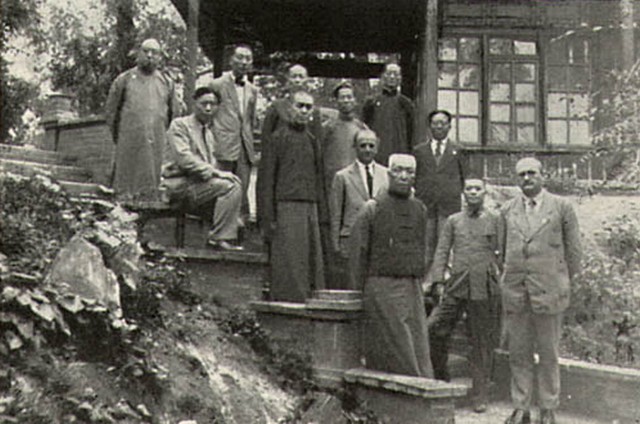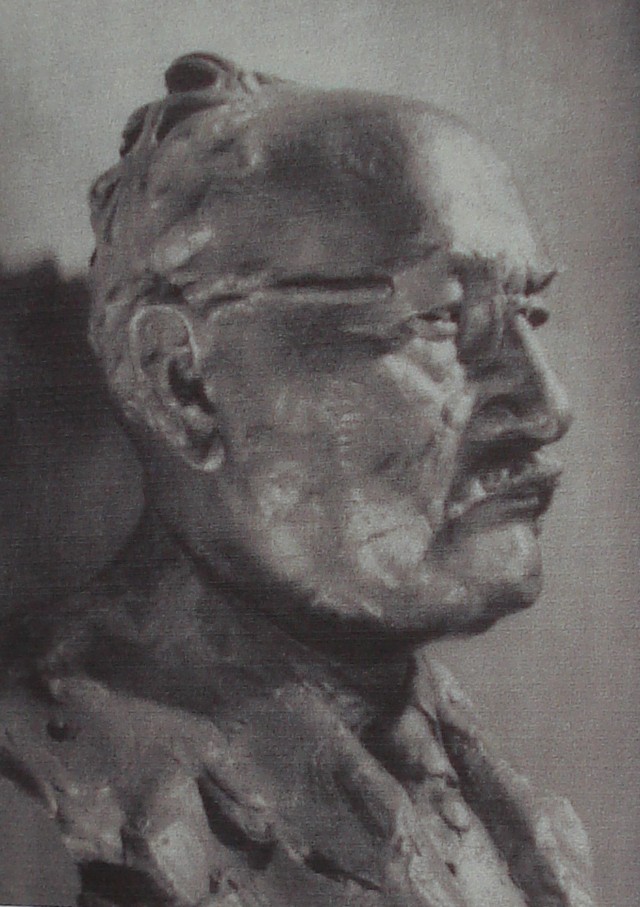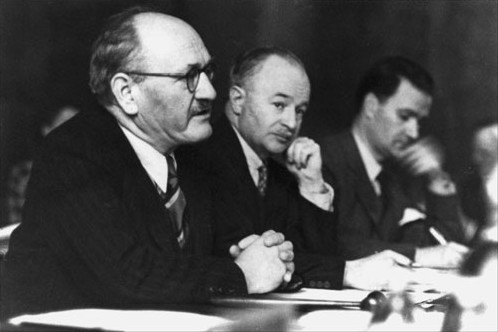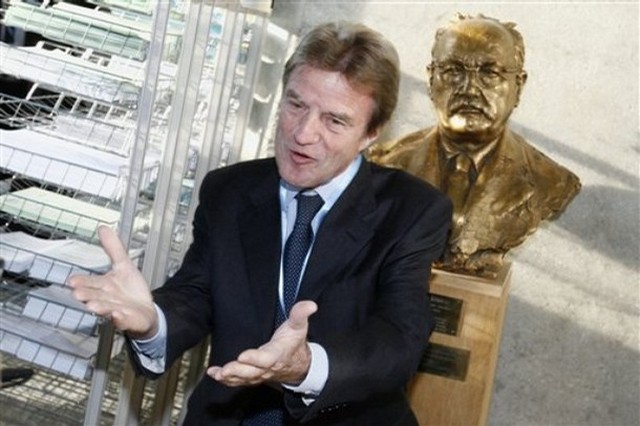
Sponsored Ads
|
» Home
» Science » Andrija Stampar, Croatian scientist, father of the World Health Organization
» Home
» People » Andrija Stampar, Croatian scientist, father of the World Health Organization
» Home
» In Memoriam » Andrija Stampar, Croatian scientist, father of the World Health Organization
» Home
» Education » Andrija Stampar, Croatian scientist, father of the World Health Organization
| Andrija Stampar, Croatian scientist, father of the World Health Organization |
| By Prof.Dr. Darko Zubrinic |
Published
07/30/2008
|
Science , People , In Memoriam , Education
|
Unrated
|
|
|
|
Andrija Stampar introduced public health care in China in 1930s, part 1
Academician Andrija Štampar (1888-1958)  Andrija Štampar (on the right) in Lanchow, China, in 1930s, establishing public health service there.
Professor Andrija Stampar (1888-1958), Croatian scientist and professor at the University of Zagreb, was our leading authority in the field of epidemiology and a pioneer in preventive medicine. As an expert of the League of Nations he spent three years (1933-1936) in China, developing the health service there. During the WW2 he was arrested by the German Nazis and kept in custody in Graz in Austria. He was one of the founders of the World Health Organization (WHO) and very active in promoting the health service in Afghanistan, Egypt, Sudan and Ethiopia. He wrote the introductory declaration of the Statute of the WHO and was the first president of this organization. In 1948 Andrija Stampar was the chairman of the first WHO General Assembly in Geneva.
In 1955 he was awarded the medal of Leon Bernard, which is the most prestigious international acknowledgement in the field of social medicine. For more details see his book The first ten years of the World Health Organization, Geneva, 1958. Each year since 1993, during its Annual Conference, the Association of Schools of Public Health in Europe (ASPHER) awards the prestigious Andrija Stampar Medal to a distinguished person for excellence in the field of Public Health.
For more details see Mirko Dražen Grmek: Andrija Štampar, provided by "Andrija Štampar" School of Public Health, Zagreb
|
 Bust of Andrija Štampar carved by Antun Augustinčić, a famous Croatian sculptor.
Štampar's famous definition of health
In 1946, the new WHO constitution incorporated a definition of health proposed by the Croatian public health pioneer Andrija Stampar. It said health was "a state of complete physical, mental and social well-being and not merely the absence of disease or infirmity." This was a qualitative leap from earlier concepts, but it was difficult for many government experts of the time to fully grasp its meaning.
Source: David A. Tejada de Rivero, Alma-Ata Revisited, Perspectives in Health , Vol 8, No 2, 2003
|
 The Interim Commission met in Geneva in 1946. From left are Professor Andrija Štampar, a consultant to the commission and Dr Brock Chisholm, first Director-General of WHO.
The historical roots of PHC (publich health care) can be found in Social Medicine, a discipline that emerged in Europe during the 19th century. One of its leading 20th century advocates was Dr Andrija Štampar, Croatian scientist, who, in fact, was deeply involved in the establishment of WHO (World Health Organization) to such a degree that he is often indicated to be the Father of WHO.
Source: Socrates Litsios, WHO
|
Theodore M. Brown and Elizabeth Fee
Andrija Stampar: Charismatic Leader of Social Medicine and International Health American Journal of Public Health, Vol 96, No 8, 2006
Theodore M. Brown is with the Departments of History and Community and Preventive Medicine, University of Rochester, Rochester, NY. Elizabeth Fee is with the History of Medicine Division, National Library of Medicine, National Institutes of Health, Bethesda, Md.
ANDRIJA STAMPAR, ONE OF the most charismatic and beloved figures in 20th century public health, was born in the village of Drenovac, Croatia, on September 1, 1888. His father was a schoolteacher who, because of his liberal views, had to move frequently to escape the consequences of his political convictions. Young Andrija absorbed his father's values and, though a brilliant student, sometimes came into conflict with his teachers when he asserted his right to be a "free thinker." After graduating from gymnasium in 1906, he enrolled at the University of Vienna Medical School. There he was attracted to Ludwig Teleky’s...
Source: American Journal of Public Health
|
 Bernard Kouchner, of France, speaks with journalists about his candidacy for the post of the WHO Director General in front of a statue of Andrija Stampar, first president of the WHO assembly, during the first day of the World Health Organization WHO Executive Board meeting at the WHO headquarters in Geneva, Switzerland, on Monday, Nov. 6, 2006. From Nov. 6 until Nov. 8, 2006 the executive board meets in Geneva to decide on candidates, to interview them and then vote to propose a candidate to the World Health Assembly. In a special session on Nov. 9, 2006 the assembly will consider the board's nomination and will appoint a new director general to succeed late Lee Jong-Wook. (AP Photo/Keystone, Laurent Gillieron)
|
Please, go to the next page below.
|
|
|
|
|